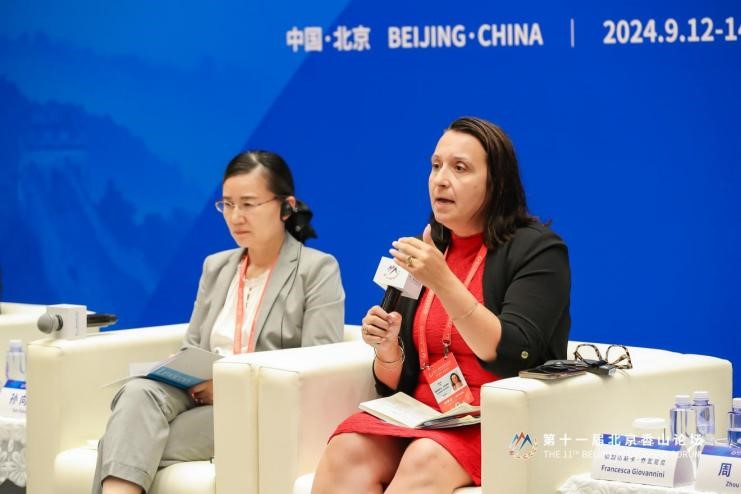Zhu Junwei, Director, Center for American Studies, Grandview Institution
Dec 24, 2024
It’s no longer just a movie: The risk of a nuclear accident, mistake or blunder that escalates into war is a tangible reality. U.S.-China engagement is urgently needed and could produce more stability and sustainability than many other areas of cooperation in the face of new and evolving nuclear risks.

Nov 08, 2024
Francesca Giovannini is executive director of the Project on Managing the Atom (MTA) at the Harvard Kennedy School’s Belfer Center for Science & Internati
Li Yan, Director of President's Office, China Institutes of Contemporary International Relations
Sep 27, 2024
When a major country moves unilaterally to increase its own security, it triggers a greater sense of insecurity in others. The recent move by the United States to adjust its nuclear response strategy is having exactly that effect, along with a return of Cold War thinking.

Richard Weitz, Senior Fellow, Hudson Institute
Sep 06, 2024
Nuclear deterrence has been a defining characteristic of international security for nearly a century now. Already having weathered one Cold War, could China push the U.S. over the edge towards an all-out arms race in the 21st Century?
Zhang Tuosheng, Principal Researcher at Grandview Institution, and Academic Committee Member of Center for International Security and Strategy at Tsinghua University
Jan 22, 2024
It is essential that China and the United States avoid a nuclear arms race. The recent stabilization of relations is a prerequisite for bilateral nuclear dialogue. Such a dialogue, in turn, will help maintain not only strategic stability but also healthy overall ties.
Richard Weitz, Senior Fellow, Hudson Institute
Jul 03, 2023
As China continues to rapidly increase its nuclear arsenal, the United States and its allies are exercising strategic response options. But ultimately, it’s imperative that China curb its nuclear buildup to avoid an unwinnable three-way arms race.
Doug Bandow, Senior Fellow, Cato Institute
Dec 02, 2022
The DPRK places Northeast Asia at risk, and their current military trajectory could pose problems for the PRC as well as the U.S. and its allies. So despite their fundamental differences, it’s in the best interests of both Washington and Beijing to find opportunities to cooperate to promote regional stability.
Wu Chunsi, Senior Fellow and Director, Institute for International Strategic Studies at SIIS
Jun 16, 2022
The raging Russia-Ukraine conflict is a stark reminder of the urgency of effective management of weapons of mass destruction. The international community must come together to restart the long-stalled international negotiations over arms control and nuclear disarmament by fully utilizing the existing mechanisms and platforms and generating greater consensus and impetus among all stakeholders. A staunch supporter of the international arms control and nuclear disarmament regime, China adheres to its longstanding nuclear policy of maximum restraint and remains committed to the pursuit of a new path leading to a world of enduring peace and stability.
Wang Fudong, Assistant Research Fellow, Institute of International Economics and Politics, Shandong Academy of Social Sciences
Mar 31, 2022
With America distracted by the Russia-Ukraine conflict, the ICBM on the Korean Peninsula is not getting much attention. But the problem won’t go away without judicious action on both sides.
He Wenping, Senior Research Fellow, Charhar Institute and West Asia and Africa Studies Institute of the China Academy of Social Sciences
Mar 08, 2022
The Russia-Ukraine conflict raises uncertainties in negotiations for a renewed Iran nuclear deal. Thorny problems remain. But while there are negatives, there are also opportunities.